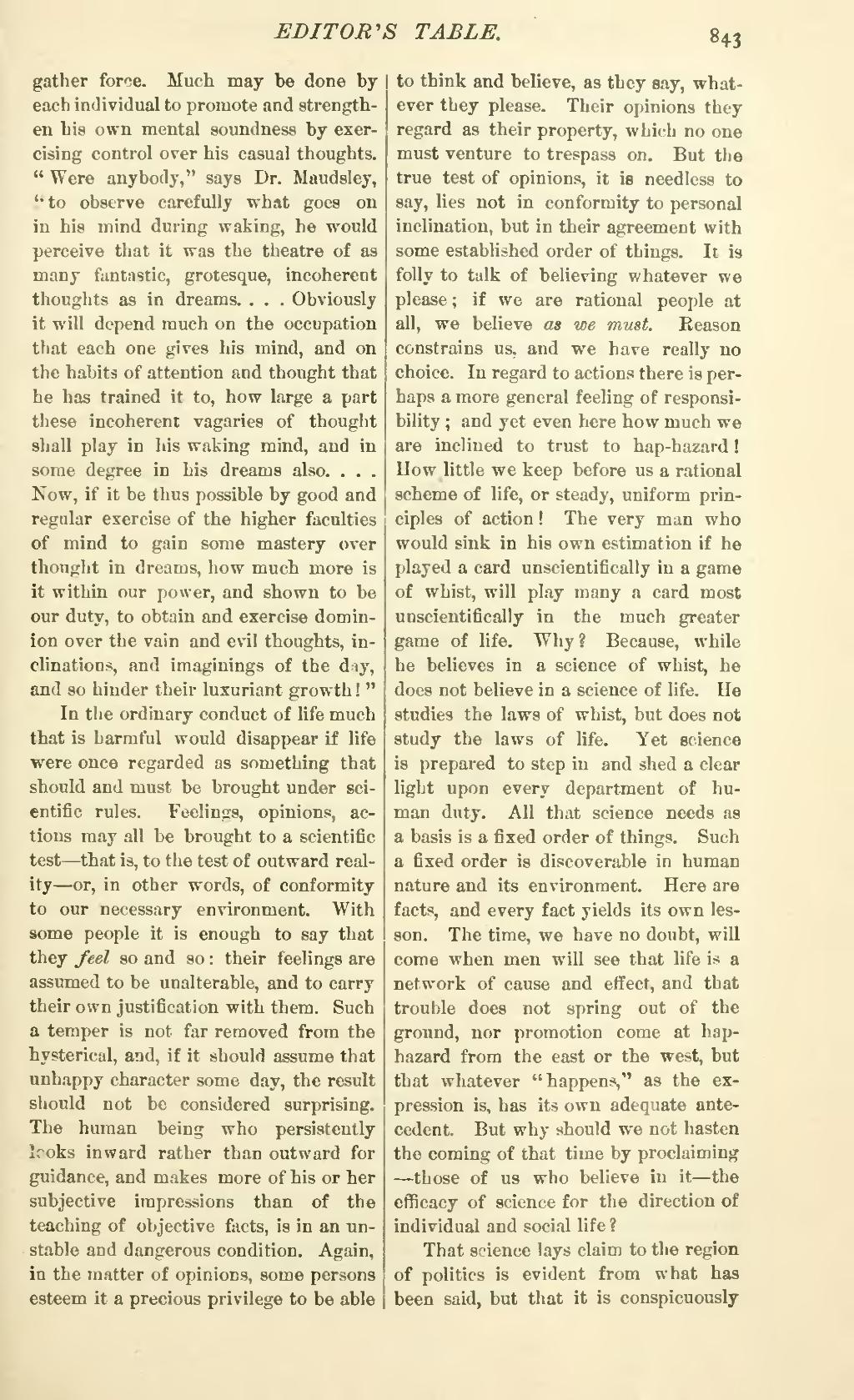gather force. Much may be done by each individual to promote and strengthen his own mental soundness by exercising control over his casual thoughts. "Were anybody," says Dr. Maudsley, "to observe carefully what goes on in his mind during waking, he would perceive that it was the theatre of as many fantastic, grotesque, incoherent thoughts as in dreams. ... Obviously it will depend much on the occupation that each one gives his mind, and on the habits of attention and thought that he has trained it to, how large a part these incoherent vagaries of thought shall play in his waking mind, and in some degree in his dreams also. ... Now, if it be thus possible by good and regular exercise of the higher faculties of mind to gain some mastery over thought in dreams, how much more is it within our power, and shown to be our duty, to obtain and exercise dominion over the vain and evil thoughts, inclinations, and imaginings of the day, and so hinder their luxuriant growth!" In the ordinary conduct of life much that is harmful would disappear if life were once regarded as something that should and must be brought under scientific rules. Feelings, opinions, actions may all be brought to a scientific test—that is, to the test of outward reality—or, in other words, of conformity to our necessary environment. With some people it is enough to say that they feel so and so: their feelings are assumed to be unalterable, and to carry their own justification with them. Such a temper is not far removed from the hysterical, and, if it should assume that unhappy character some day, the result should not be considered surprising. The human being who persistently looks inward rather than outward for guidance, and makes more of his or her subjective impressions than of the teaching of objective facts, is in an unstable and dangerous condition. Again, in the matter of opinions, some persons esteem it a precious privilege to be able to think and believe, as they say, whatever they please. Their opinions they regard as their property, which no one must venture to trespass on. But the true test of opinions, it is needless to say, lies not in conformity to personal inclination, but in their agreement with some established order of things. It is folly to talk of believing whatever we please; if we are rational people at all, we believe as we must. Reason constrains us, and we have really no choice. In regard to actions there is perhaps a more general feeling of responsibility; and yet even here how much we are inclined to trust to hap-hazard! How little we keep before us a rational scheme of life, or steady, uniform principles of action! The very man who would sink in his own estimation if he played a card unscientifically in a game of whist, will play many a card most unscientifically in the much greater game of life. Why? Because, while he believes in a science of whist, he does not believe in a science of life. He studies the laws of whist, but does not study the laws of life. Yet science is prepared to step in and shed a clear light upon every department of human duty. All that science needs as a basis is a fixed order of things. Such a fixed order is discoverable in human nature and its environment. Here are facts, and every fact yields its own lesson. The time, we have no doubt, will come when men will see that life is a network of cause and effect, and that trouble does not spring out of the ground, nor promotion come at haphazard from the east or the west, but that whatever "happens," as the expression is, has its own adequate antecedent. But why should we not hasten the coming of that time by proclaiming—those of us who believe in it—the efficacy of science for the direction of individual and social life?
That science lays claim to the region of politics is evident from what has been said, but that it is conspicuously

